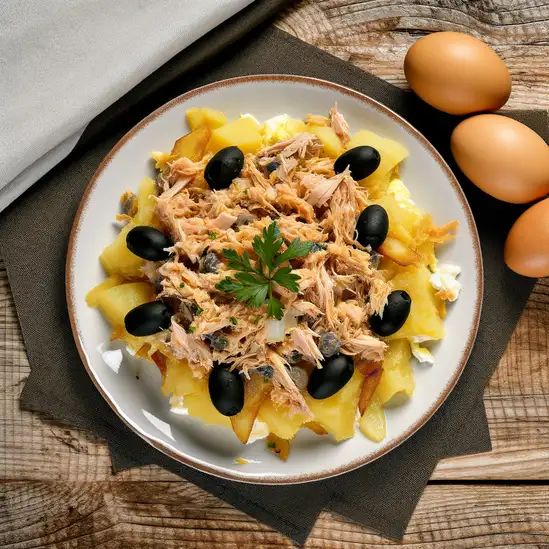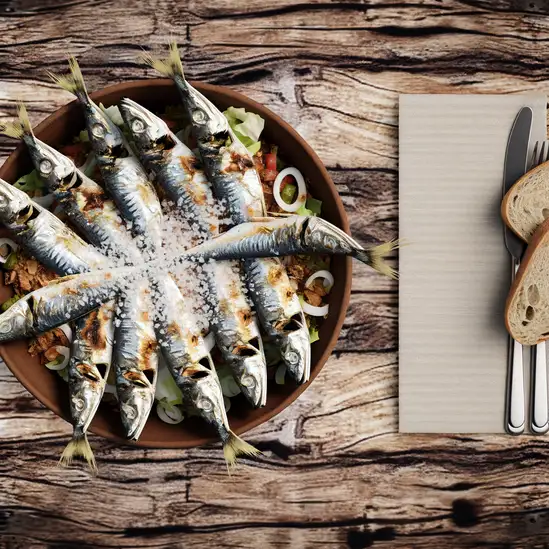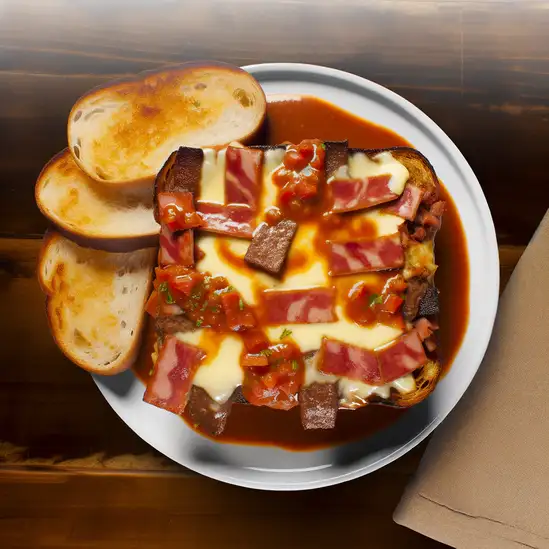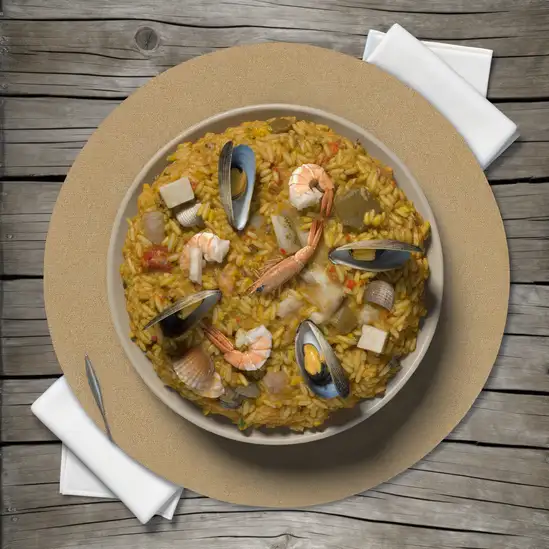



If you ever find yourself craving a place where the Atlantic breeze carries stories of old fishermen and the rhythm of waves sets your pace,Póvoa de Varzim is where you want to be. This coastal town has a laid-back charm that feels like a warm embrace—imagine cobbled streets lined with colorful azulejo tiles,the salty tang of the sea mingling with the scent of fresh bread from local bakeries. Early mornings here are magical,with fishermen unloading their catch while seagulls chatter overhead,and the soft hum of the ocean creating a soothing soundtrack. What really makes Póvoa de Varzim stand out is its blend of tradition and lively spirit. The city pulses with a genuine connection to its maritime roots,yet it’s also buzzing with cafes where locals sip strong coffee and chat animatedly. You’ll find yourself drawn to the Mercado Municipal,where vibrant stalls overflow with fresh seafood,ripe fruits,and handmade crafts. The nearby beaches invite you to sink your toes into golden sand,watch surfers dance on the waves,or simply bask under the sun with a book in hand. Evenings here have a special glow—lanterns flicker along the promenade,and the aroma of grilled sardines drifts from open-air restaurants. The people are warm and welcoming,proud of their heritage but eager to share it with visitors. Póvoa de Varzim isn’t just a place to see; it’s a place to feel alive,where every corner tells a story and every moment invites you to slow down and savor life’s simple pleasures.
The information on this page is currently being reviewed by Tripkliq and should be used as a guide only
Eng word: Hello
Eng pronunciation: Oh-lah
Local language: Olá
Eng word: Goodbye
Eng pronunciation: Ah-deh-oosh
Local language: Adeus
Eng word: Thank you
Eng pronunciation: Oh-bree-gah-doo
Local language: Obrigado
Eng word: How much
Eng pronunciation: Kwahn-too koos-tah
Local language: Quanto custa
Eng word: Toilet
Eng pronunciation: Bahn-yay-roo
Local language: Banheiro
Eng word: Help me
Eng pronunciation: Ah-zhoo-dee mee
Local language: Ajude-me
Eng word: Yes
Eng pronunciation: Seem
Local language: Sim
Eng word: No
Eng pronunciation: Now
Local language: Não
Eng word: Excuse me
Eng pronunciation: Kohm lee-sen-sah
Local language: Com licença
Póvoa de Varzim has been inhabited since the pre-Roman era, with archaeological evidence of ancient settlements dating back to the Iron Age.
The city was an important Roman trading post known as 'Villa Euracini,' which played a significant role in the region's commerce and culture.
During the Middle Ages, Póvoa de Varzim developed as a fishing village and was granted a charter by King Denis of Portugal in 1308, which helped to establish its municipal identity.
The city's maritime heritage is celebrated through its traditional fishing practices and the annual 'Festas de São Pedro,' a festival honoring Saint Peter, the patron saint of fishermen.
In the 17th century, the city was fortified with the construction of the Nossa Senhora da Conceição Fortress to protect against pirate attacks and foreign invasions.
Póvoa de Varzim is home to several notable architectural landmarks, including the Baroque-style Church of Our Lady of Sorrows and the 18th-century Matriz Church.
The city has a rich literary history and was the birthplace of the famous Portuguese writer Eça de Queirós, whose works are celebrated in local cultural events.
In the 19th century, Póvoa de Varzim became a popular beach resort destination, attracting visitors with its beautiful sandy beaches and vibrant seaside atmosphere.
The city hosts numerous cultural festivals throughout the year, including the International Music Festival and the Póvoa de Varzim Book Fair, which draw visitors from around the world.
In Póvoa de Varzim, the most common Power Adaptor is Type C, Type F.



A traditional Portuguese dish made with shredded salted cod, onions, and thinly chopped fried potatoes, all bound together with scrambled eggs and garnished with black olives and parsley.

A popular Portuguese soup made with kale, potatoes, onions, and chorizo, known for its comforting and hearty flavor.

Grilled sardines, typically seasoned with salt and served with a drizzle of olive oil, are a popular dish, especially during the summer months and local festivals.

A hearty sandwich originally from Porto, the Francesinha is made with layers of cured meats, sausage, and steak, topped with melted cheese and a rich tomato and beer sauce.

A seafood rice dish that combines various types of shellfish and fish with rice, cooked in a flavorful broth, often seasoned with herbs and spices.

A light and fluffy sponge cake that is a traditional dessert in Portugal, often enjoyed with coffee or as a sweet treat after meals.
Imagine stepping into a city where every corner hums with a quiet,soulful energy—that’s Porto. It’s a place where the old world meets a lively,modern pulse,wrapped in the warm glow of terracotta rooftops and the shimmering Douro River. Walking through its narrow,cobbled streets,you’ll catch the scent of freshly baked pastéis de nata mingling with the salty breeze from the Atlantic. The city feels alive but unhurried,like it’s inviting you to slow down and savor each moment.
Porto’s character is deeply rooted in its history,yet it’s effortlessly cool. You’ll find colorful azulejo tiles telling stories on building facades,while locals chat animatedly over glasses of rich,ruby-red port wine in cozy,tucked-away taverns. The sound of Fado music drifts softly from a nearby café,adding a layer of melancholy beauty to the evening air. It’s a city that wears its heart on its sleeve—warm,genuine,and a little bit mysterious.
What really makes Porto stick with you is how it tastes and feels. From the first sip of a perfectly chilled glass of Vinho Verde to the crunch of a francesinha sandwich packed with layers of flavor,the city’s culinary scene is a delicious adventure. And when you climb up to the Dom Luís I Bridge at sunset,watching the city light up like a living painting,you realize Porto isn’t just a place to visit—it’s a place to feel alive.
Lisbon feels like a city that’s been gently kissed by the sun and the sea,where every street corner hums with life and stories. Imagine wandering through narrow,cobbled alleys lined with pastel-colored buildings,their azulejo tiles catching the light just right. The air carries a mix of salty ocean breeze and the rich aroma of freshly baked pastéis de nata—those flaky custard tarts you’ll find in every bakery. There’s a rhythm here,a kind of laid-back energy that invites you to slow down and soak it all in.
You’ll hear the soulful strains of fado music drifting from cozy taverns,a haunting soundtrack that feels like the city’s heartbeat. Locals chat animatedly over glasses of vinho verde or ginjinha,a cherry liqueur that’s as sweet as the conversations. The city’s hills offer stunning views where terracotta rooftops spill down toward the Tagus River,and the sunlight shimmers on the water like a thousand tiny mirrors.
Lisbon’s charm lies in its blend of old and new—ancient trams clatter past sleek street art,and centuries-old castles overlook buzzing markets filled with fresh seafood and vibrant produce. It’s a place where history and modern life dance together effortlessly,inviting you to explore,taste,and feel its unique pulse. Trust me,once you’ve wandered through its neighborhoods and tasted its flavors,Lisbon stays with you long after you leave.
Imagine stepping into a place where the ocean breeze carries the scent of blooming jacarandas and the distant hum of traditional Portuguese guitars fills the air—that’s Funchal for you. This city feels like a warm embrace,perched on the lush,rugged coastline of Madeira. Walking through its cobbled streets,you’ll notice vibrant markets bursting with fresh tropical fruits and the rich aroma of freshly baked bolo do caco bread. The colors here are alive:from the deep blue Atlantic stretching endlessly to the bright bougainvillea cascading down old stone walls.
Funchal’s charm lies in its blend of old-world grace and lively,modern spirit. Locals chat animatedly over glasses of Madeira wine in cozy tavernas,while street art peeks out from unexpected corners,telling stories of the island’s history and culture. The city pulses gently with a relaxed rhythm—you can feel it in the slow,deliberate pace of life and the genuine smiles of the people you meet.
Don’t miss the chance to ride the cable car up to Monte,where the views make your breath catch,or to wander through the botanical gardens,where exotic plants and butterflies create a quiet sanctuary. And when night falls,the harbor lights twinkle like stars,inviting you to savor fresh seafood paired with that sweet,fortified wine Madeira is famous for. Funchal isn’t just a destination; it’s a feeling you carry with you long after you leave.
If you ever find yourself dreaming of a place where the ocean breeze carries the scent of salt and blooming hydrangeas,Ponta Delgada is that kind of spot. It’s the lively heart of São Miguel Island in the Azores,and the moment you step into its cobbled streets,you feel this warm,welcoming pulse—like the city itself is breathing with you. The colorful buildings,with their intricate stonework and bright shutters,seem to tell stories of centuries past,while locals chat animatedly over coffee in cozy cafés that spill out onto sun-dappled squares.
Walking along the marina,you’ll hear the gentle slap of waves against boats and the distant call of seagulls,mingling with the laughter of children playing nearby. The air is fresh,tinged with the promise of adventure,whether you’re about to explore volcanic craters or dive into a plate of freshly caught seafood. Speaking of food,don’t miss trying the local cozido—a stew slow-cooked underground by volcanic heat,rich with flavors that feel like a warm hug on a cool day.
What really makes Ponta Delgada special is its blend of old-world charm and vibrant island life. There’s a relaxed rhythm here,where time slows just enough for you to savor a glass of local wine while watching the sun dip behind the hills. It’s a place that invites you to linger,to explore,and to fall a little in love with the simple,beautiful moments that make travel unforgettable.
If you wander into Faro,you’ll immediately feel this laid-back,sun-soaked rhythm that’s both calming and quietly vibrant. It’s the kind of place where the old town’s cobbled streets invite you to slow down,and the scent of salty sea air mingles with the faint aroma of freshly baked pastries from a nearby café. Faro isn’t just a gateway to the Algarve; it’s a charming city with its own soul,where history whispers from every corner and locals greet you with genuine warmth.
Strolling through the city,you’ll notice the delicate play of light on the whitewashed buildings,the colorful tiles telling stories of centuries past. The cathedral’s bell tower offers a peaceful lookout,where you can watch fishing boats drift lazily on the Ria Formosa lagoon. At night,the city softens into a cozy glow,and the hum of conversation spills out from small tavernas where you can savor fresh seafood paired with a glass of crisp Portuguese wine.
What really makes Faro special is its blend of old-world charm and natural beauty. You can lose yourself in the maze of narrow streets,then hop on a boat to explore the nearby islands,feeling the breeze and hearing the gentle splash of waves. It’s a place that invites you to breathe deeply,taste slowly,and soak in moments that feel both timeless and refreshingly real.
Barcelona feels like a vibrant mosaic where every corner pulses with life and color. The moment you step onto its sun-drenched streets,you’re wrapped in a warm Mediterranean embrace—salt in the air,the distant hum of waves mingling with lively chatter from bustling cafés. The city’s energy is contagious,a blend of old-world charm and modern creativity that invites you to slow down and savor each moment.
Wandering through the narrow alleys of the Gothic Quarter,you’ll hear the soft clinking of glasses and the melodic strum of a street guitarist,while the scent of fresh-baked bread and roasting coffee drifts from cozy bakeries. Barcelona’s architecture is like a living art gallery—Gaudí’s whimsical buildings,with their undulating lines and vibrant mosaics,feel almost dreamlike against the bright blue sky. It’s a place where history and imagination dance together.
Food here is a celebration in itself. Imagine biting into a perfectly crispy,golden croqueta or savoring the rich,smoky flavors of a traditional paella,all washed down with a glass of chilled cava. The city’s markets,like La Boqueria,burst with colors and aromas—ripe tomatoes,fresh seafood,and fragrant herbs—that make you want to taste everything.
What makes Barcelona truly special is its spirit:a city that lives passionately,where locals and visitors alike gather to share stories,laughter,and the simple joy of being in a place that feels both timeless and alive. Trust me,once you’ve experienced it,you’ll carry a piece of Barcelona’s magic with you long after you leave.
Scammers may install skimming devices on ATMs to steal card information from tourists withdrawing cash.
Street vendors may sell counterfeit or low-quality goods, such as fake designer items, at inflated prices to unsuspecting tourists.
Scammers may approach tourists claiming to represent a local charity and ask for donations. These charities are often fake, and the money goes directly to the scammer.
Individuals may pose as tour guides and offer overpriced or fake tours, providing little to no value to tourists.
Some taxi drivers may overcharge tourists by taking unnecessarily long routes or not using the meter properly.
Tourists in crowded areas, such as markets or beaches, may be targeted by pickpockets who steal wallets, phones, or other valuables.
Some restaurants may inflate bills or add hidden charges for tourists, especially if they appear unfamiliar with local pricing or customs.
Portugal has decriminalized the possession of small amounts of drugs for personal use, including in Póvoa de Varzim. This means that while possession is not a criminal offense, it is still illegal and can result in fines or mandatory treatment programs. Trafficking and distribution of drugs remain serious criminal offenses with severe penalties. Tourists should avoid carrying or using drugs to stay within the law.
In Póvoa de Varzim, as in the rest of Portugal, smoking is prohibited in enclosed public spaces, workplaces, public transport, and certain outdoor areas such as playgrounds and sports facilities. There are designated smoking areas in some public places, including restaurants and bars, but these must be clearly marked. Tourists should look for 'Área de Fumadores' signs to identify these areas.
Vaping is subject to similar regulations as smoking in Póvoa de Varzim. It is prohibited in enclosed public spaces, workplaces, and public transport. Some establishments may have designated vaping areas, but these are less common than smoking areas. Tourists should be mindful of local signage and regulations.
What are other people saying about Póvoa de Varzim?
Recent Social posts about Póvoa de Varzim
There is nothing to show you for now.